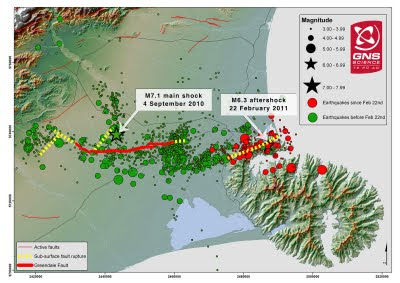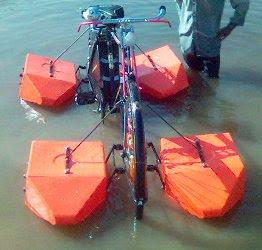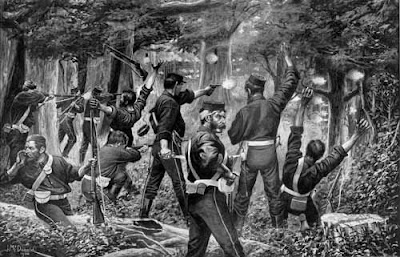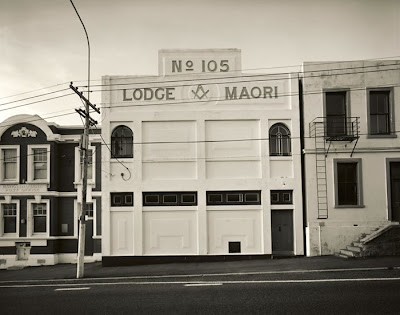In this, Māori are not alone as Indigenous communities worldwide draw on whatever capital they have, including social capital comprising the networks of trust and understanding and, perhaps defining this development, cultural capital. A variety of institutions that are based on but not restricted to tradition, now promote Indigenous development while maintaining an awareness of economic bottom-lines. Therefore it can be said that the global challenge of addressing sustainable resource-use in accordance with passionately expressed, locally-generated, and culturally-attuned goals is encapsulated within contemporary Māori and Indigenous economies.

New Zealand has proven adept at past trade negotiations, and many of the predominantly Pākeha players have come from the ‘backblocks’ of New Zealand to take privileged seats at the world’s most powerful meetings. But recent negative publicity on an important delegation to the Middle East, contestation of domestic laws by foreign companies, declining ecological resilience, struggling innovation, and polarising political movements describe a cultural distance that exacerbates this country’s physical distance from the people we need to buy our produce. A racist view positions Māori at the very start of these extended supply chains: low-skilled labourers in a fast-moving world. But trade policy is no longer the exclusive club of politicians, officials, and lawyers. Various social movements now forcefully express alternative perspectives, domestically and offshore. Furthermore, new ‘players’ (coming from what are still labelled Third World or ‘developing’ nations, and potentially representing billions of people) enter the global game as the old Imperial economies struggle with many of the issues New Zealand is confronting. To be Indigenous, of ‘mixed’ descent, or an immigrant is no longer a bad thing and may actually enable previously unrealisable advantages.

While the diplomatic club is no longer exclusively white it is still predominantly masculine, further complicating Māori diplomacy by a sexism that diminishes the significant role of Indigenous women. As with their Pākeha counterparts, wāhine Māori have struggled to gain senior roles in public and private sectors while suffering (along with their children and grandchildren) the worst effects of economic marginalisation. Yet so much community resilience is reliant upon the empowered participation of women! In Aotearoa/New Zealand, if Māori-centric approaches frame how a significant component of the future economy will operate, and women are key decision-makers, then these networks operate in a vacuum of understanding by Māori and non-Māori, men and women.
The insertion of Indigenous discourse is an ineradicable moral, philosophical, legal, and practical challenge to several of the world’s economies, and particularly to those which New Zealand is historically and geopolitically linked. While Indigenous Peoples have achieved remarkable high-level formal recognition of their rights, resilience remains tenuous for many communities. Future trade negotiations involving Indigenous groups, currently in their infancy, are at risk of being opaque or even unintelligible to key participants.
Bibliography
Abbott, M. (2007). New Zealand and the global economy: external economic relations and trade policy. Wellington: Dunmore Publishing.
Anderson, R. B., Dana, L. P., & Dana, T. E. (2006). Indigenous land rights, entrepreneurship, and economic development in Canada: "Opting-in" to the global economy. Journal of World Business, 41(1), 45-55. doi:10.1016/j.jwb.2005.10.005
Bargh, M. (Ed.). (2007). Resistance: An Indigenous Response to Neoliberalism. Wellington: Huia Publishers.
Cornell, S. (2006). Indigenous Peoples, Poverty and Self-Determination in Australia, New Zealand, Canada and the United States: Native Nations Institute for Leadership, Management, and Policy/Harvard Project on American Indian Economic Development. (JOPNA 2006-02)
Kaa, J. (2010). A place at the tepu. Koha, 5. Retrieved from http://www.koha.biz/2010/02/a-place-at-the-tepu/
Kee, P., & Yoshimatsu, H. (Eds.). (2010). Global movements in the Asia Pacific. Singapore: World Scientific.
Kelsey, J. (2010). Trading sovereignty for short-term advantage. New Zealand Herald. Opinion. Retrieved from http://www.nzherald.co.nz/nz/news/article.cfm?c_id=1&objectid=10686070
Kerr, W. A., & Gaisford, J. D. (Eds.). (2007). Handbook on International Trade Policy. Cheltenham, U.K., Northampton, MA.: Edward Elgar.
Lambert, S. (2008). The Expansion of Sustainability through New Economic Space: Maori potatoes and Cultural Resilience. Saarbruken: Vdm Verlag Dr. Muller Aktiengesellschaft & Co. Kg.
Lambert, S., & Fairweather, J. (2010). The socio-technical networks of technology users’ innovation in New Zealand: A fuzzy-set qualitative comparative analysis (No. 320). Christchurch: Agribusiness and Economics Research Unit.
Langley, J. (2010, December 15th, 2010). PM's copter crash decision short-sighted, irresponsible, The New Zealand Herald. Auckland: APN Holdings NZ Limite http://www.nzherald.co.nz/business/news/article.cfm?c_id=3&objectid=10642750
Ministry of Women's Affairs. (2009). Maori women on boards. Wellington: Ministry of Women's Affairs. Retrieved from http://www.mwa.govt.nz/news-and-pubs/maori-women-on-boards.pdf
Pihama, L., & Gardner, D. (2005, August 2005). Building baseline data on Maori, whanau development and Maori realising their potential: Literature: Developing leadership. Auckland: International Research Institute/University of Auckland.
Rai, S. M. (2002). Gender and the Political Economy of Development: From Nationalism to Globalization. Cambridge: Polity Press.
Scholten, P., & Holzhacker, R. (2009). Bonding, bridging and ethnic minorities in the Netherlands: changing discourses in a changing nation. Nations and Nationalism, 15(1), 81-100. Retrieved from http://dx.doi.org/10.1111/j.1469-8129.2009.00350.x
Smale, T. (2009). Playing to our strengths. Wellington: NZ Trade and Enterprise.
Spiller, C., Erakovic, L., Henare, M., & Pio, E. (2010). Relational well-being and wealth: Maori businesses and an ethic of care. Journal of Business Ethics, 98, 153-169.
United Nations. (2007). United Nations Declaration on the Rights of Indigenous Peoples. Retrieved May 13th, 2011, from http://www.un.org/esa/socdev/unpfii/en/declaration.html
United Nations Educational Scientific and Cultural Organisation. (1998, 31 August 1998). Intergovernmental Conference on Cultural Policies for Development (No. CLT-98/Conf.210/5). Stockholm: UNESCO. Retrieved from http://unesdoc.unesco.org/images/0011/001139/113935eo.pdf
Wright, J. (2008). State of the Environment: “Prioritising Environmental Challenges: What Matters Most?”. Retrieved from http://www.pce.govt.nz/news/speeches/State_of_the_Environment_28_Aug_2008.pdf













